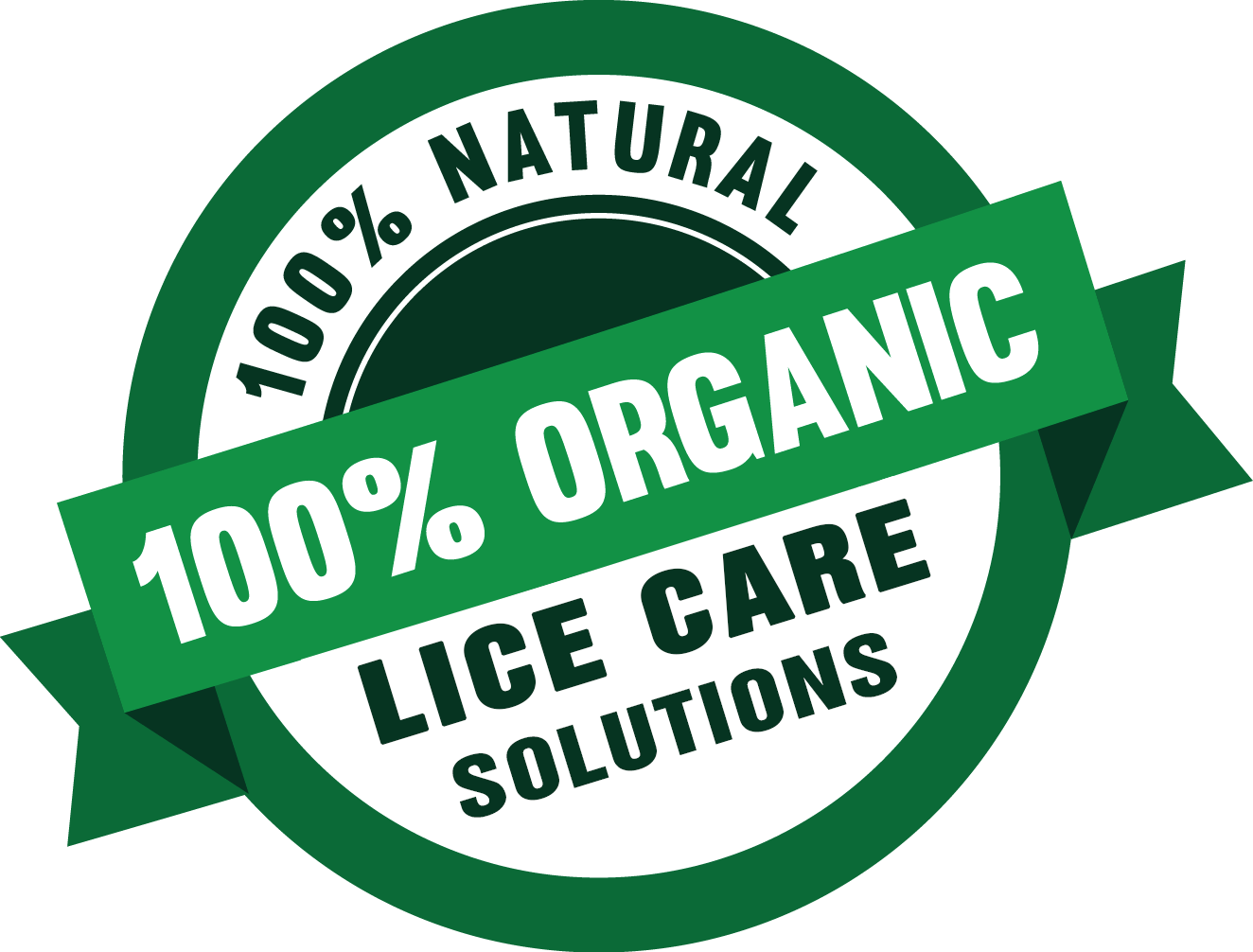When potentially dealing with lice, it’s important to obtain peace of mind and understand if you’re having real physical reactions or just psychological ones. We get it, the non-stop itchiness, the constant dread and potential for an outbreak – anyone might spiral into a panic. These are real concerns, but as lice professionals, we are here to comb through the chaos and provide you with the facts.
“Do I have lice, or am I just paranoid?!”
The broken record repeating in your head. You’re not the first person to feel this way and we want to help you ditch the confusion
We are going to walk you through common lice symptoms, self-assessments and an overall gameplan. Knowledge is your secret weapon against lice, the prevention of obtaining lice and the treatment of lice if you have it.
Common Reasons for Lice Paranoia
It’s completely normal for lice concerns to spark a wave of paranoia, especially given the stigma around lice. Common reasons for lice paranoia can be social stigma, misinformation, and fear of potential outbreaks. Understanding some of these root concerns are the first step in helping dispel lice related anxiety.
- Social Stigma:
- Fear of judgment or embarrassment associated with you or a child with lice can contribute to heightened paranoia.
- Misinformation in Communities:
- Widespread myths and misconceptions about lice, their transmission, and treatment can fuel unnecessary anxiety.
- Potential Outbreaks:
- Your concerns that a lice infestation could lead to an outbreak among friends and family.
- Persistent Itchiness:
- Commonly associated with lice, persistent itching can trigger paranoia, even if it may be due to other causes.
- Lack of Knowledge:
- Limited understanding of lice symptoms, transmission methods, and effective treatments can leave individuals feeling vulnerable and anxious.
- School or Workplace Concerns:
- Anxiety related to the potential social and professional repercussions of having lice, such as exclusion or judgment in educational or work settings.
- Fear of Recurrence:
- Individuals who have dealt with lice in the past may experience ongoing paranoia, fearing a recurrence of the infestation.
- Pressure to Conform:
- Social pressure to conform to lice prevention norms, leading to anxiety about potential infestations, even in the absence of concrete evidence.
- Media Portrayals:
- Depictions of lice in media, often sensationalized or exaggerated, can contribute to unrealistic fears and heightened paranoia.
- Personal Hygiene Concerns:
- Belief that lice infestations are a result of poor personal hygiene, leading to concerns about judgment from others.
Your concerns about lice are responsible and are the right steps to be taking. Here at Lice Care Solutions, we are all about providing accurate and scientific information on lice and giving you the solutions to get rid of it. Again, knowledge is your secret weapon, and by getting the right information, you’re taking the reins on your situation. If you’re still paranoid, you can always talk to one of our lice care professionals.
Common Lice Symptoms
Your understanding of common symptoms associated with lice is crucial for a self-assessment. Below is an overview of these symptoms:
- Itchy Scalp: Detailing the Sensation and its Relation to Lice
- One of the most prevalent symptoms, an itchy scalp is often caused by the allergic reaction to lice bites. This persistent itching can range from mild to intense and is commonly felt around the neck, ears, and scalp.
- Visible Lice or Nits: Describing What to Look for During Self-Examination
- Lice are tiny, wingless insects that can be challenging to spot. During self-examination, look for adult lice or their eggs (nits), which are oval and usually attached to hair shafts close to the scalp. Nits may appear yellow or white.
- Red Bumps or Sores: Explaining the Potential Skin Reactions to Lice Bites
- Lice feed on blood, and their bites can lead to skin irritation. Red bumps or sores may develop as a result of these bites. Scratching can further exacerbate the irritation, leading to potential secondary infections.
- Other Telltale Signs: Mentioning Factors like Difficulty Sleeping or Irritability
- Lice infestations can disrupt sleep, causing irritability and restlessness. Pay attention to any unexplained difficulty sleeping, increased irritability, or changes in behavior, especially in children.
Understanding these common lice symptoms is key when doing your self-checks. Take it step by step, and if you ever need expert advice, our team of lice professionals are a call away. We’re here to unfold the facts about lice, helping you make thoughtful decisions that bring peace to your mind and your loved ones. Stick around as we delve deeper into the world of lice – your steady guide to a hassle-free space.
Self-Assessment: Do I Have Lice?
When it comes to determining whether you have lice, a systematic self-assessment can provide clarity. Follow this step-by-step guide for effective self-examination:
Step-by-Step Guide for Self-Examination:
- Well-Lit Environment: Conduct the examination in a well-lit area to ensure visibility.
- Sectioning Hair: Divide the hair into small sections for thorough inspection.
- Focus on Scalp and Neck: Concentrate on the scalp, especially around the neck and ears, where lice are commonly found.
- Check for Movement: Look for any signs of movement, as lice can be mobile.
- Inspect for Nits: Examine hair shafts for nits, paying attention to their oval shape and proximity to the scalp.
If you’re not confident in conducting the above process, our lice care professionals are available for both virtual consultations and mobile to your door head checks.
Tips on Using a Fine-Toothed Comb for Detection:
Utilize a fine-toothed comb to comb through small sections of hair. Wetting the hair can make it easier to spot both lice and nits. Comb from the scalp to the ends, wiping the comb on a paper towel between strokes.
Common Mistakes to Avoid During Self-Assessment:
- Incomplete Examination: Ensure thorough examination of the entire scalp, as lice can be present in various areas.
- Misidentifying Nits: Differentiate between nits and other particles like dandruff or debris to avoid misdiagnosis.
- Relying Solely on Itchiness: While itching is a common symptom, not everyone with lice experiences it. Base your assessment on multiple symptoms.
When it comes to lice, nailing that self-assessment is crucial. These guidelines are your go-to playbook, helping you avoid the typical slip-ups and giving you the power to size up the situation smartly. But don’t forget, if those concerns start creeping in or you hit a snag during self-assessment, that’s what we are here for. It’s all about you making informed choices, and that includes reaching out when you need it.
When to Consult a Lice Removal Professional
Acknowledge that self-assessment has inherent limitations, and factors such as the size of lice or the presence of nits may be challenging to identify accurately without professional assistance. If uncertainty persists after self-examination, it’s time to consider consulting a professional.
Scenarios Where Professional Advice is Essential:
- Multiple Family Members Affected: If lice are detected in one family member, seeking professional advice is crucial to prevent the infestation from spreading.
- Persistent Symptoms: If itching or other symptoms persist despite at-home treatments, consulting a professional ensures a comprehensive approach to addressing the issue.
- History of Lice Recurrence: Individuals with a history of lice infestations may benefit from professional guidance to break the cycle and implement effective preventive measures.
Healthcare Providers, School Nurses, or Lice Removal Professionals:
Professional advice can come from various sources, including:
- Healthcare Providers: General practitioners or dermatologists can offer medical expertise and prescribe appropriate treatments.
- School Nurses: Especially beneficial for families with school-going children, as they can provide guidance on school policies and effective lice management.
- Lice Removal Professionals: Seeking the services of professional lice removal experts ensures a thorough and effective approach to treatment.
Getting the professionals involved not only helps the issue right away but also stops lice from throwing a party in your community. We’re diving deep into the world of lice management, and knowing when to tap into professional help is your ticket to top-notch care that covers all the bases. It’s your secret weapon in the battle against lice chaos.
Debunking Lice Myths
In your pursuit of accurate information about lice, it’s essential to dispel common misconceptions and myths that may contribute to unwarranted fears. Let’s unravel the truth:
- Lice Only Infest Unkempt Hair: Lice are equal opportunists and can infest clean or dirty hair. Personal hygiene is not a determining factor.
- Lice Jump or Fly: Lice crawl and do not have the ability to jump or fly. They spread through direct head-to-head contact.
- Pets Transmit Lice: Human lice are species-specific and do not transfer between humans and pets. Lice requires a human blood source to survive.
- Lice are a Sign of Poor Hygiene: Lice infestations can happen to anyone and are not indicative of personal hygiene. They are more about close human contact.
- All Itchy Scalps Have Lice: While itching is a common symptom, various scalp conditions can cause similar sensations. Not all itchy scalps are due to lice.
- Lice Prefer Long Hair: Lice can infest hair of any length. The length of hair does not impact their ability to survive or reproduce.
Busting those myths is your ticket to kicking stress to the curb. You don’t need unnecessary fears messing with your head. What’s your game plan? Trust the facts from the big guns – your healthcare heroes, the school health squads, and the lice removal professionals who know their stuff.
Lice Prevention Measures and Hygiene Practices
To maintain a lice-free environment, adopt these straightforward preventive measures and hygiene practices:
Tips for Preventing Lice Infestations:
- Regularly check hair for signs of lice, especially after potential exposure.
- Promote minimal head-to-head contact, particularly in group settings.
- Avoid sharing personal items like combs, brushes, and hats.
Proper Hygiene Practices to Reduce the Risk of Lice:
- Wash hair regularly for early detection and overall scalp health.
- Use shared hair accessories thoughtfully, cleaning or disinfecting them regularly.
- Educate on personal space to minimize prolonged head contact.
Educating About Lice Transmission and Prevention Strategies:
- Emphasize the primary modes of lice transmission: direct head-to-head contact and shared personal belongings.
- Consider preventive products like lice repellent sprays or oils for added protection.
By incorporating these simple practices into your routine and educating others about lice transmission, you can contribute to a lice-resistant environment.
Navigating a Lice-Free Life: Taking Charge and Seeking Guidance
Understanding your lice symptoms and adopting proactive measures is key to maintaining a lice-free lifestyle. Recognize the signs, stay vigilant with self-assessment, and practice good hygiene. If uncertainties persist, don’t hesitate to seek professional advice from healthcare providers, school nurses, or lice removal experts.
Take control of your well-being. Stay lice-aware and proactive in your approach. For accurate diagnosis and effective treatment, reach out to professionals who can provide the guidance you need. Your commitment to staying informed is the first step towards a lice-free life. Embrace a proactive mindset and enjoy the peace of mind that comes with a lice-aware lifestyle.
If you have any questions or need further assistance, feel free to contact us today. We’re here to support you on your journey to a lice-free and healthy living.






